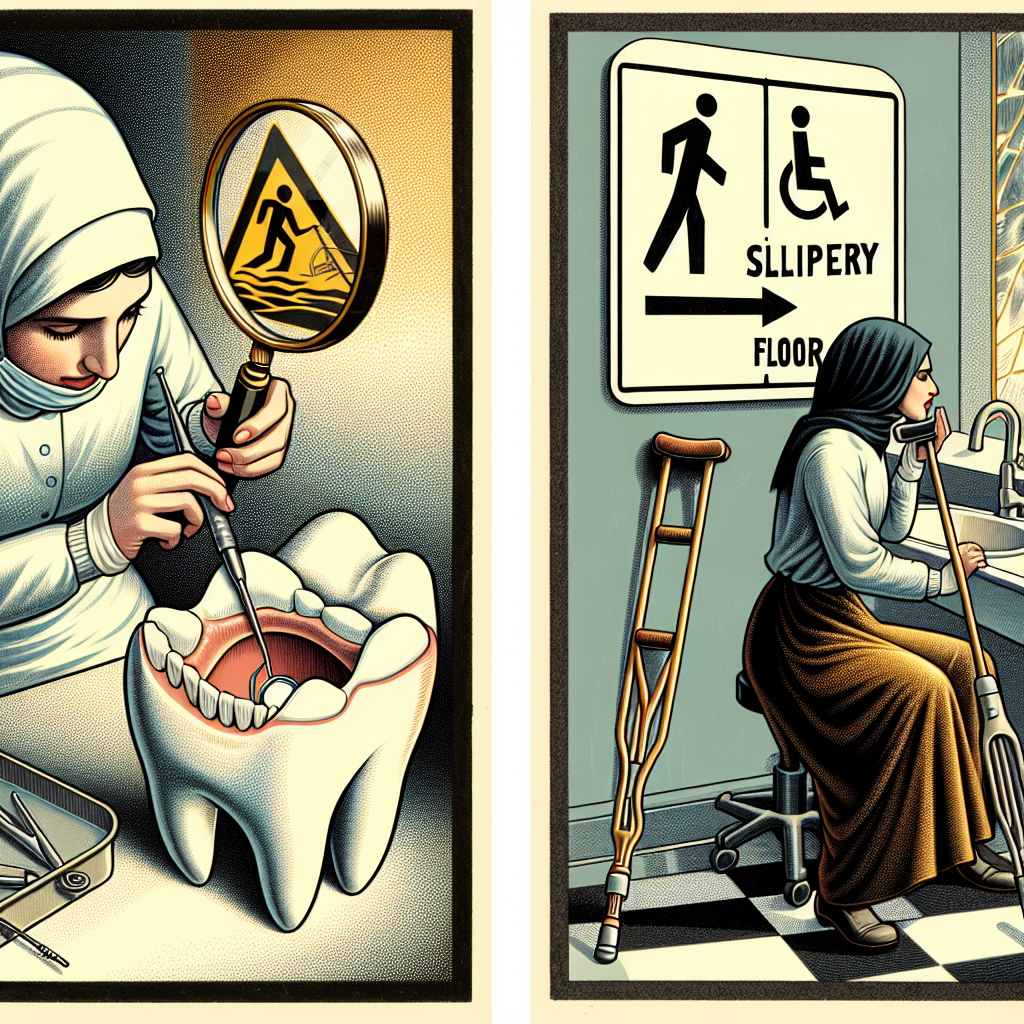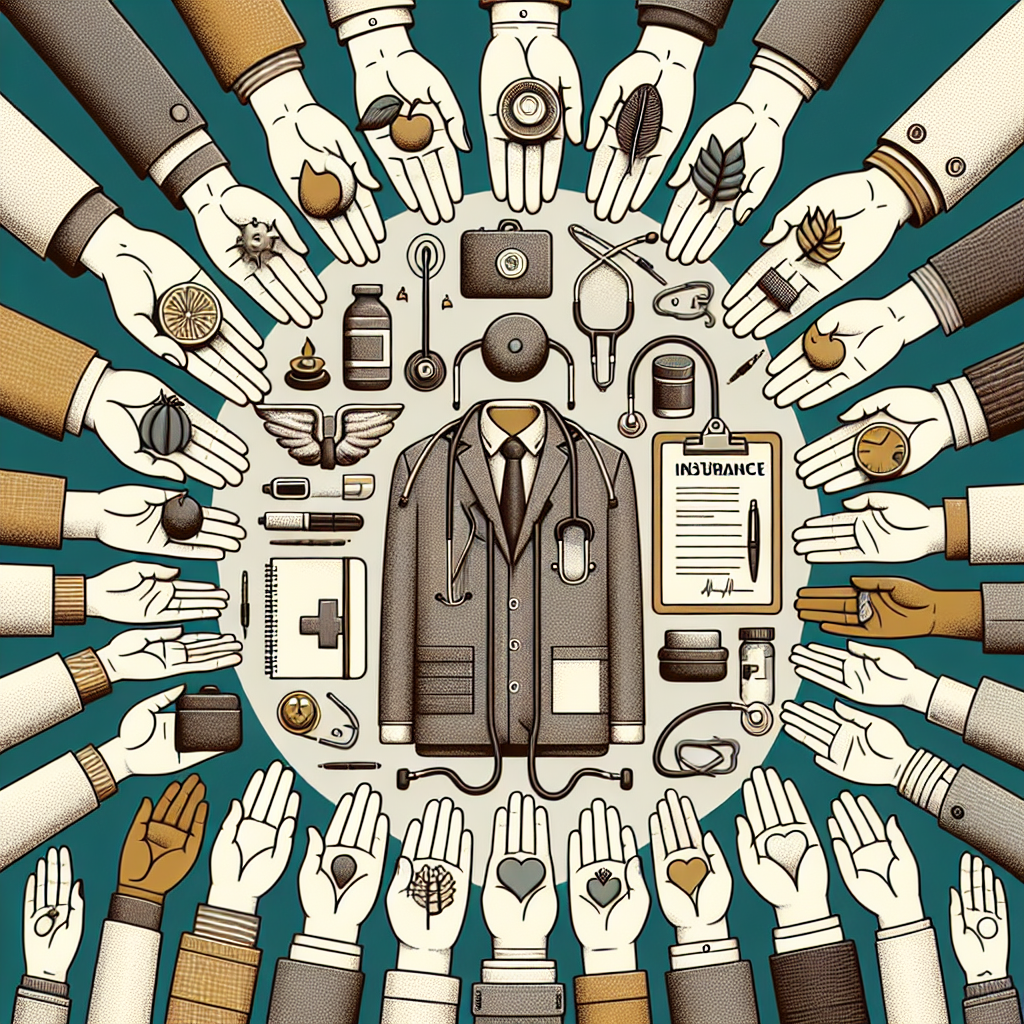Filed under Disability Insurance on
Why Dental Hygienists Need Disability Insurance

In today's fast-paced world, dental hygienists play a critical role in maintaining public oral health. However, like any profession that involves repetitive physical tasks, there are inherent risks. Dental hygienists often overlook the necessity of disability insurance, yet it's a safeguard that can prove indispensable. With the keyword focus "disability insurance for dental hygienists," we delve into why this specific group needs such coverage and how it benefits them both professionally and personally.
Understanding the Role of Dental Hygienists
Dental hygienists are often the unsung heroes of dental care practices. They provide essential services such as teeth cleaning, patient screening, and educating patients on proper dental care. The profession requires not just precision and skill but also involves physical demands, often leading to strains or injuries over time.
Physical Demands and Risks Faced by Dental Hygienists
It's crucial to recognize the physical toll that dental hygiene takes on practitioners. The repetitive tasks and awkward postures common in dental care can lead to musculoskeletal disorders, carpal tunnel syndrome, and back strain. A 2019 study in the Journal of Dental Hygiene highlighted that over 60% of dental hygienists report musculoskeletal pain, a testament to the occupational hazards they face.
These conditions not only affect the ability to work but can lead to long-term health challenges. Thus, disability insurance for dental hygienists isn't just an optional safety net; it's a vital component of professional longevity and financial security.
What is Disability Insurance?
To better understand why disability insurance is critical, it's essential to know what it entails. Disability insurance provides income protection if an illness or injury prevents you from working. For dental hygienists, this means financial support in the event that a work-related injury or condition forces them to take time off.
There are generally two types of disability insurance: short-term and long-term. Short-term covers temporary disabilities, typically offering benefits for a few months, while long-term could provide financial assistance for issues extending beyond six months.
Why Dental Hygienists Need This Coverage
- Financial Stability: Without the ability to work, a dental hygienist's steady income can be at risk. Disability insurance ensures a continuation of income, thus safeguarding against financial instability.
- Peace of Mind: Knowing that you have a safety net allows dental hygienists to focus more on their recovery without the added stress of financial concerns.
- Protection Against Unpredictability: Life can be unpredictable, and having insurance acknowledges that while preventing the occupational hazards in this field is essential, unforeseen circumstances can still arise.
The Cost of Not Having Disability Insurance for Dental Hygienists
Without disability insurance, dental hygienists put themselves at risk of severe financial damage. The cost of medical treatments coupled with lost income can quickly deplete savings. Moreover, retraining for new work may be financially and emotionally draining. In essence, lacking disability insurance is a gamble that could lead to financial devastation.
How to Choose the Right Disability Insurance for Dental Hygienists
Selecting an appropriate disability insurance policy requires careful consideration of various factors:
Coverage Options and Inclusions
It's crucial to choose a policy tailored to the specific occupational hazards faced by dental hygienists. Coverage should ideally encompass both short-term and long-term disability options, addressing potential industry-specific risks. Policies that cover a percentage of your income, particularly those that offer a higher payout, can provide optimal benefits.
Policy Terms and Conditions
Understanding the terms of your policy is crucial. Look for plans that define disability in a way that considers your specific job requirements. Some policies might label you 'disabled' if you can't perform your regular duties, while others might require broader proof of disability. Compare policies from different providers to ensure you receive the best coverage for your unique situation.
Waiting Period and Benefit Period
The waiting period, which is the time between when an injury occurs and when benefit payments commence, varies between policies. Dental hygienists should consider how long they can manage expenses without income. Additionally, evaluate the benefit period— the duration you'll receive payments— which can significantly affect your financial planning.
Industry Trends and Expert Opinions
Industry experts increasingly advocate for comprehensive disability insurance for dental hygienists. A growing trend shows that practices are beginning to offer insurance as part of employment packages, recognizing the vital role it plays in employee satisfaction and retention. An article in DentistryIQ noted that as awareness grows, so does the demand for policies specifically designed for dental professionals.
The digital age has also ushered in more resources for dental hygienists to seek and compare disability insurance policies, allowing for greater transparency and education regarding their options.
The Long-Term Benefits of Disability Insurance
At the core, disability insurance for dental hygienists isn't just a temporary fix but a long-term strategy for career sustainability. It supports career longevity by allowing professionals to recover without the pressure of returning to work prematurely due to financial constraints. Moreover, it reassures dental hygienists that their selected career path is secure despite the physical challenges it presents.
Conclusion: A Wise Investment for Dental Hygienists
For dental hygienists, investing in disability insurance means investing in their future and well-being. By prioritizing this coverage, they protect themselves against the vulnerabilities inherent in their profession, ensuring they can continue to care for others without neglecting their personal health and financial security. Ultimately, disability insurance empowers dental hygienists to perform their roles with peace of mind, knowing that they've secured their professional and personal livelihoods.



